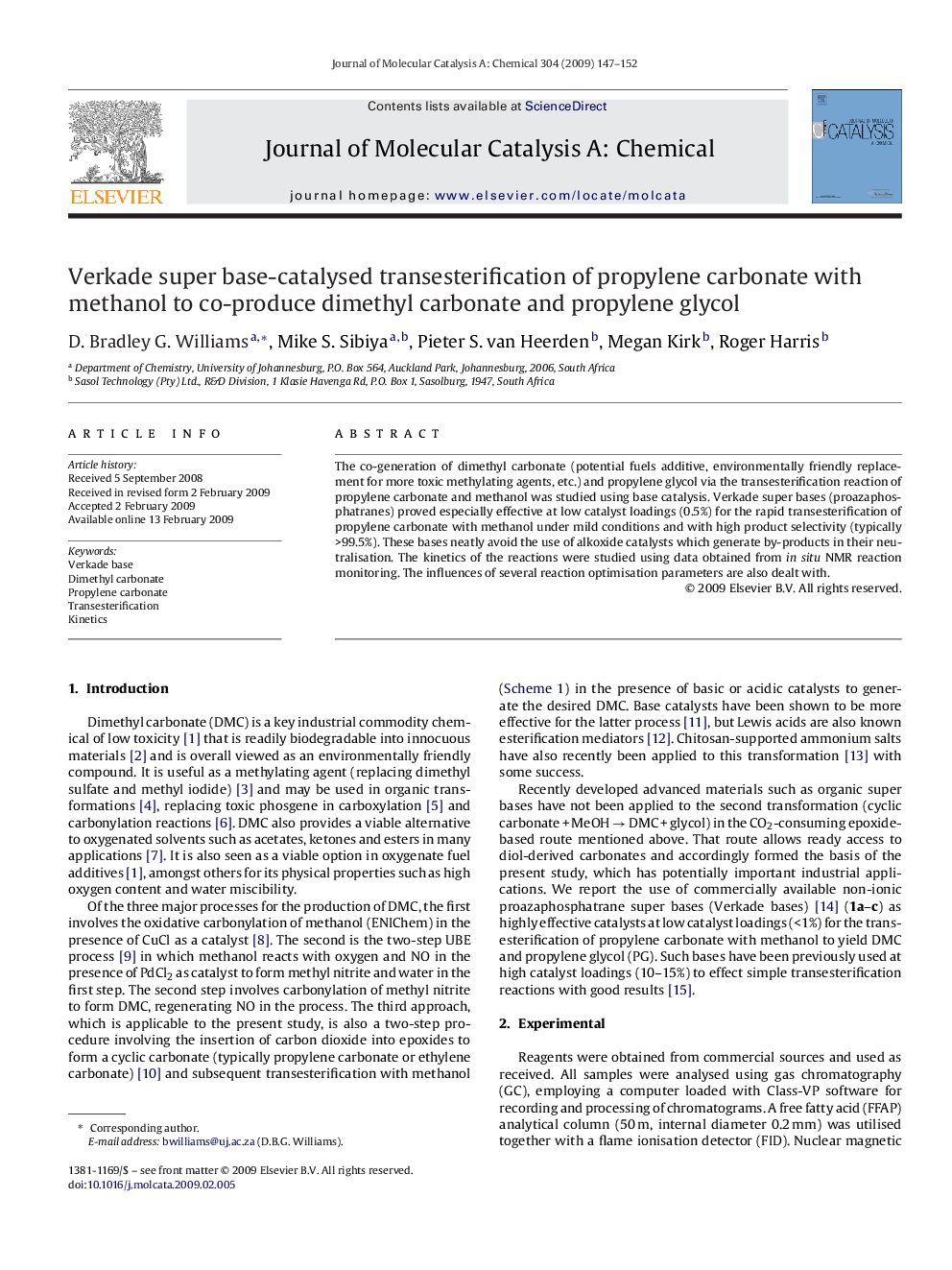| Article ID | Journal | Published Year | Pages | File Type |
|---|---|---|---|---|
| 67062 | Journal of Molecular Catalysis A: Chemical | 2009 | 6 Pages |
The co-generation of dimethyl carbonate (potential fuels additive, environmentally friendly replacement for more toxic methylating agents, etc.) and propylene glycol via the transesterification reaction of propylene carbonate and methanol was studied using base catalysis. Verkade super bases (proazaphosphatranes) proved especially effective at low catalyst loadings (0.5%) for the rapid transesterification of propylene carbonate with methanol under mild conditions and with high product selectivity (typically >99.5%). These bases neatly avoid the use of alkoxide catalysts which generate by-products in their neutralisation. The kinetics of the reactions were studied using data obtained from in situ NMR reaction monitoring. The influences of several reaction optimisation parameters are also dealt with.
Graphical abstractVerkade super bases are excellent transesterification catalysts for the conversion of propylene carbonate into dimethyl carbonate and propylene glycol at low catalyst loadings. Batch data and in situ generated NMR data correlate well and the kinetics of the reaction are studied.Figure optionsDownload full-size imageDownload as PowerPoint slide
